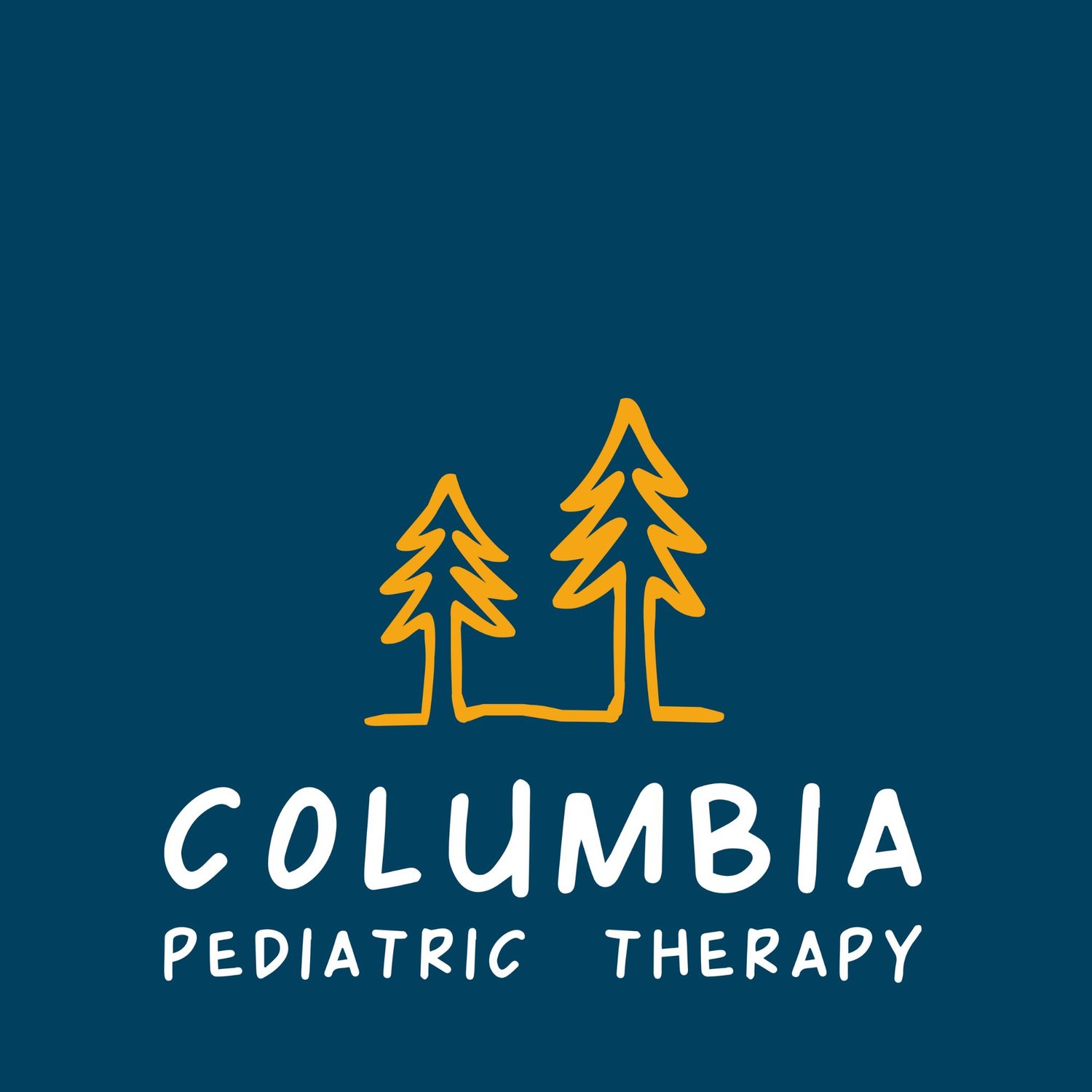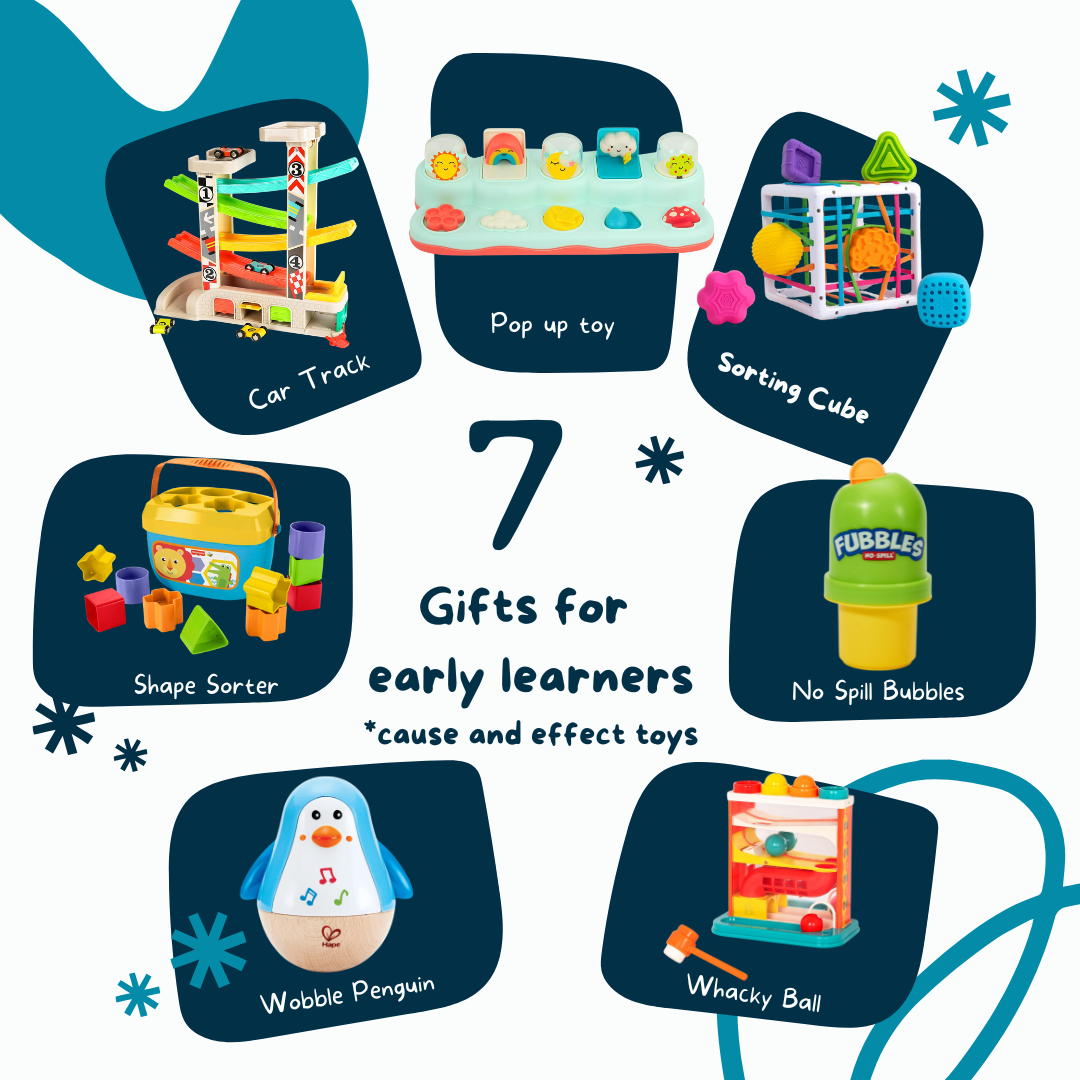Top Therapy Toy Gift Ideas
Check out this Holiday Gift Guide for your kids!
Our favorite toys for learning and fun!
Finding the best gift for your child can be both exciting and challenging. Whether you're shopping for the holidays, a birthday, or just because, consider these therapy-inspired toys.
Our therapists have put together this list to help you start brainstorming fun ways to engage with your child or provide great tools for playdates with peers!
TIPS: Be mindful of your child’s developmental level, not necessarily what the age range shows on the box. Remember to have fun! If the child doesn’t play by ALL of the rules, makes up their own way of playing, or skips a few steps, remember, they are LEARNING! Follow your child’s lead. Adjust the play if needed. Plan a family game night once a week. It doesn’t have to be long. You can set a timer, finish the game another night (but remember to follow-through!).
1. Cause-and-Effect Toys for Early Learning
Cause-and-effect toys are wonderful for helping children understand their actions' outcomes. They’re ideal for enhancing motor skills, focus, and early cognitive development. Here are some favorites:
Car Track: Encourages tracking, visual attention, and hand-eye coordination.
Pop-Up Toy: Perfect for strengthening finger dexterity and teaching object permanence.
Sorting Cube & Shape Sorter: Help with spatial awareness and problem-solving.
No-Spill Bubbles: Great for sensory exploration and hand strength.
Wobble Penguin & Whacky Ball: Support balance, movement, and motor planning.
2. Toys for Pretend Play
Imaginative play encourages social-emotional development and creativity. These toys inspire storytelling and role-playing:
Tool Kit: Fosters fine motor precision and problem-solving as kids "fix" things.
Pretend Kitchen & Food Sets: Promote imaginative play while learning about daily routines.
Play House: Perfect for role-playing family dynamics and improving verbal communication.
Farm Animals: Encourage vocabulary expansion and interactive storytelling.
Doctor's Kit: A fun way to practice empathy and build confidence in medical settings.
Gardening Set: Teaches patience and introduces environmental concepts.
3. Early Board Games for Skill Development
Board games provide opportunities to learn turn-taking, patience, and collaboration while strengthening memory and cognitive skills. Here are some therapy-friendly options:
Candyland & Zingo: Great for color and word recognition.
Pop the Pig & Guess Who?: Enhance problem-solving and social interaction.
Monkey Around: A movement-based game for improving coordination.
Count Your Chickens: Supports counting and teamwork.
Dinosaur Escape: Combines strategy with cooperative play.
4. Gifts for Advanced Learners
Board games provide opportunities to learn turn-taking, patience, and collaboration while strengthening memory and cognitive skills. Here are some therapy-friendly options:
Sleeping Queens: Learning a few more rules than younger games, this one combines a bit of math and turn-taking
Guess in 10: Ask up to 10 questions means decision making, problem solving, and creative thinking
Bubble Talk: social-emotional learning, story-telling and sequencing
Taco vs Burrito: learning strategy, even older middle-school kids can enjoy!
Hedbanz: deductive reasoning, critical thinking, and race against the timer
Jenga: fine motor skills, motor planning, anticipating
Pop Up Pirate: no one knows which slot will pop up the pirate! Turn taking, expanding language
These toys are tools that encourage growth, learning, and fun. Whether you're a parent, therapist, or educator, these ideas can inspire joyful and developmental play. We’ve used them all in speech therapy, occupational therapy, and even physical therapy to help guide our goals!
Want to learn more about how play can support your child’s growth? Connect with us at Columbia Pediatric Therapy for tailored recommendations and professional therapy services.





